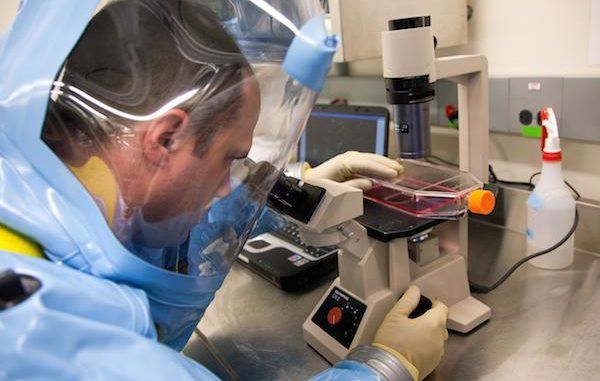
The World Health Organisation (WHO) will decide in August, at the earliest, whether or not to recommend a widespread Ebola vaccine to the world after testing is concluded in countries hit hardest by the outbreak, namely; West Africa – Guinea, Liberia, and Sierra Leone.
The results of clinical testing done by vaccines produced by GlaxoSmithKline and Merck-NewLink in these countries will affect the possible roll out of a global Ebola vaccine.
Reuters.com reports:

BYPASS THE CENSORS
Sign up to get unfiltered news delivered straight to your inbox.
You can unsubscribe any time. By subscribing you agree to our Terms of Use
WHO spokesman Christian Lindmeier, reporting on a three-day meeting of experts, told a news briefing: “Vaccine introduction is by no means a given and will depend on the results of clinical trials and recommendations from WHO’s Strategy Advisory Group of Experts (SAGE) on vaccines and immunization.
“The earliest that the SAGE is expected to make recommendation on a wide-scale introduction is August. Decisions on whether or not to introduce the vaccine will be made by the respective ministries of health of countries.”
There are “many unknowns”, Lindmeier said. “It will depend on outcomes of clinical trials, evolution of the epidemic etc.”
A steep fall in Ebola cases recorded in Liberia will make it hard to prove whether experimental vaccines work in a major clinical trial, meaning some testing may have to be moved to Sierra Leone, the head of the U.S. National Institutes of Health (NIH) said in late January.
WHO spokeswoman Margaret Harris said: “We know the vaccines are safe, we know they produce a good immunogenic response in humans, but we don’t know if they are effective when you actually have disease in community.”
Guinea, Liberia and Sierra Leone reported 99 new confirmed Ebola cases in the week to Feb. 22, down from 128 the previous week, the WHO said on Wednesday.
In all, more than 23,500 cases have been reported in the three West African countries, with more than 9,500 deaths, since the world’s worst outbreak of Ebola began in December 2013.

